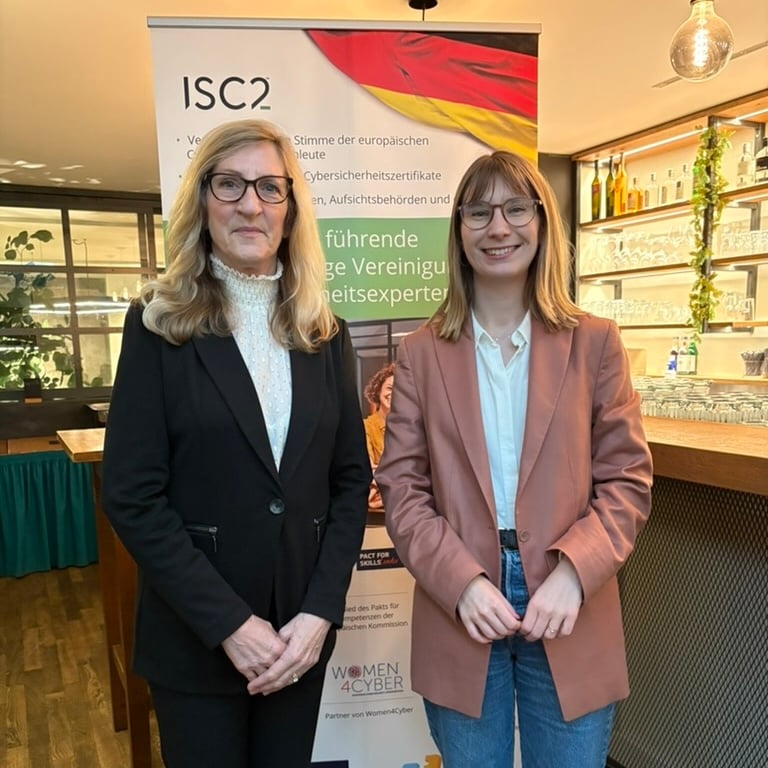Since April 2023, ISC2 has offered free access to the Certified in Cybersecurity (CC) training program and exam as part of a pledge to create 20,000 new cybersecurity professionals across Europe. We reflect on progress over the past year and explore how this initiative has helped build the next generation of cybersecurity leaders.
Following the establishment of the EU Cybersecurity Skills Academy in April 2023, which was created to help close the cyber security talent gap, ISC2 was the first organization to pledge support for the Academy. It did so by offering free access to ISC2’s Certified in Cybersecurity (CC) training program and exam.
Through this pledge, ISC2 committed to providing 20,000 individuals across all EU member states with the opportunity to gain foundational cybersecurity knowledge, skills and certification. This program helps prepare people for an entry- or junior-level cybersecurity role. CC can help people to build some of the key skills and knowledge in the European Cybersecurity Skills Framework (ECSF), indicating readiness to enter the workforce to employers.
Exceeding Expectations: The Results So Far
The response to ISC2’s pledge has exceeded expectations. By October 2024, 27,816 candidates had registered for the program, surpassing the original goal by 39%. Of these, 3,438 participants have completed the training and passed the exam.
The need for cybersecurity professionals has never been greater. Over the past year, the cybersecurity workforce gap in Europe increased by 9.8%, leaving the region short of 424,000 skilled individuals. A key part of this gap stems from the fact that nearly a quarter of organizations have no entry-level staff on their security teams. A further 13% have no junior-level members at all. These figures suggest the workforce gap will continue to grow, as companies will struggle to secure enough talent in the future if there aren’t enough pathways into the industry today. This highlights the critical importance of developing a strong talent pipeline to secure the future of Europe’s digital economy.
Supporting Careers and Building a Diverse Cybersecurity Workforce
The CC certification is already having an impact on participants’ career prospects. According to the end of initiative survey, 55% of respondents said their primary motivation for completing the CC program was to “secure a job” or “start a career in cybersecurity.” The program illustrates the power of certification to open doors to new career paths, as 42% of participants were not in cybersecurity roles prior to registering for the program. For those who have completed the certification, the results are promising. Over a third (35.6%) of survey respondents reported that they had joined a cybersecurity or IT role following their certification.
The program has created a pathway into cybersecurity for individuals from diverse backgrounds. The initiative attracted registrations from across all EU member states and includes participants from a wide range of age groups. Importantly, the program has seen strong representation from diverse demographics, with non-white ethnic groups well-represented among registrants. The overall proportion of women registrants also reflected the industry average and exceeded it for some age groups. Cybersecurity is an industry which has traditionally struggled with gender diversity and initiatives like this can help to create entry points.
Meeting the Future Needs of Europe’s Cybersecurity Industry
Based on an EU-wide survey and feedback, ISC2 will continue and update the Pledge to ensure it reflects the evolving needs of the workforce. By surpassing its initial goals and driving positive career outcomes for participants, ISC2 is contributing to the long-term resilience of Europe’s cybersecurity ecosystem.


